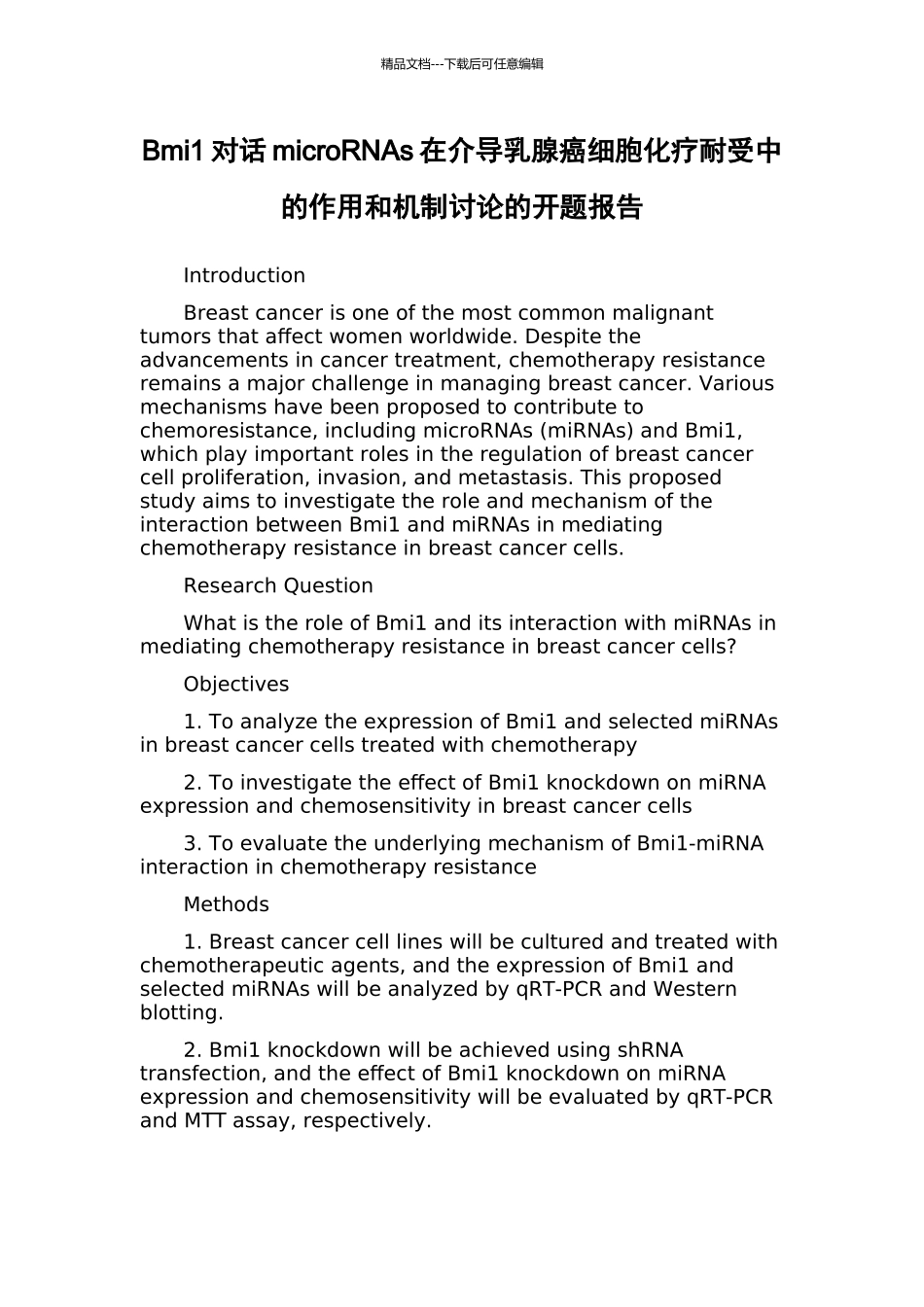精品文档---下载后可任意编辑Bmi1 对话 microRNAs 在介导乳腺癌细胞化疗耐受中的作用和机制讨论的开题报告IntroductionBreast cancer is one of the most common malignant tumors that affect women worldwide. Despite the advancements in cancer treatment, chemotherapy resistance remains a major challenge in managing breast cancer. Various mechanisms have been proposed to contribute to chemoresistance, including microRNAs (miRNAs) and Bmi1, which play important roles in the regulation of breast cancer cell proliferation, invasion, and metastasis. This proposed study aims to investigate the role and mechanism of the interaction between Bmi1 and miRNAs in mediating chemotherapy resistance in breast cancer cells.Research QuestionWhat is the role of Bmi1 and its interaction with miRNAs in mediating chemotherapy resistance in breast cancer cells?Objectives1. To analyze the expression of Bmi1 and selected miRNAs in breast cancer cells treated with chemotherapy2. To investigate the effect of Bmi1 knockdown on miRNA expression and chemosensitivity in breast cancer cells3. To evaluate the underlying mechanism of Bmi1-miRNA interaction in chemotherapy resistanceMethods1. Breast cancer cell lines will be cultured and treated with chemotherapeutic agents, and the expression of Bmi1 and selected miRNAs will be analyzed by qRT-PCR and Western blotting.2. Bmi1 knockdown will be achieved using shRNA transfection, and the effect of Bmi1 knockdown on miRNA expression and chemosensitivity will be evaluated by qRT-PCR and MTT assay, respectively.精品文档---下载后可任意编辑3. The underlying mechanism of Bmi1-miRNA interaction in mediating chemotherapy resistance will be investigated using luciferase reporter assay and Western blotting.Expected ResultsThe results of this study will reveal the role of Bmi1 and its interaction with miRNAs in mediating chemotherapy resistance in breast cancer cells. Additionally, the study is expected to identify potential targets for enhancing the efficacy of chemotherapy in breast cancer treatment.SignificanceThis study is significant as it will contribute to a better understanding of the mechanisms underlying chemotherapy resistance in breast cancer and identify potential targets for antibody or drug development that could enhance chemotherapy efficacy in breast cancer treatment.

